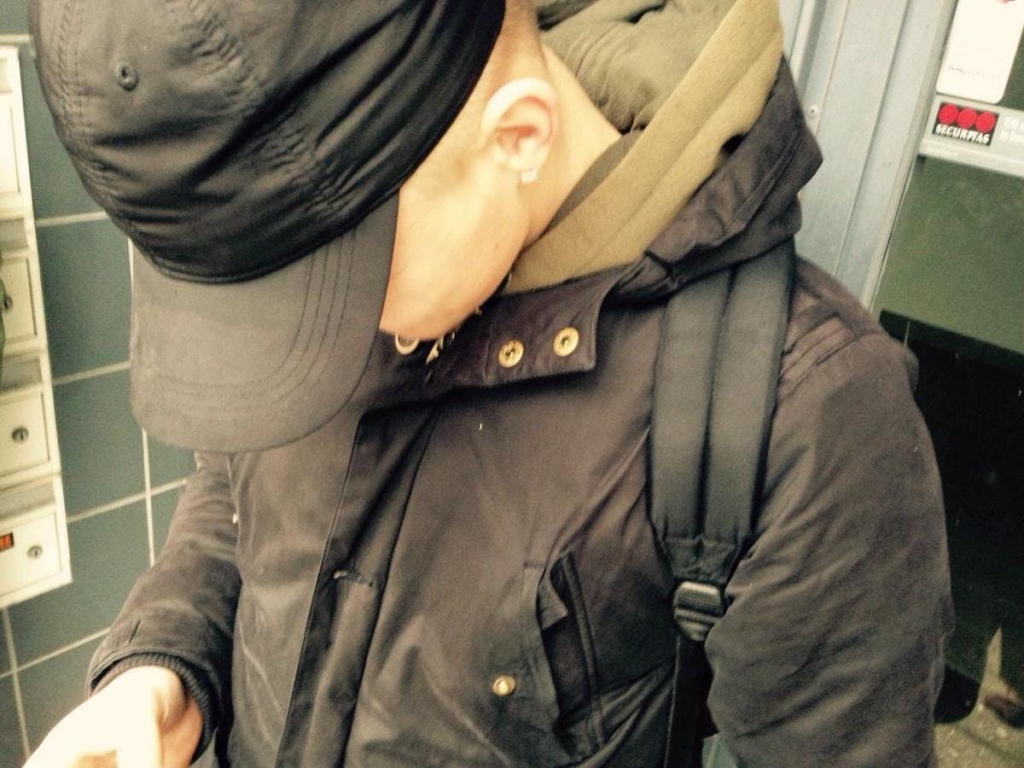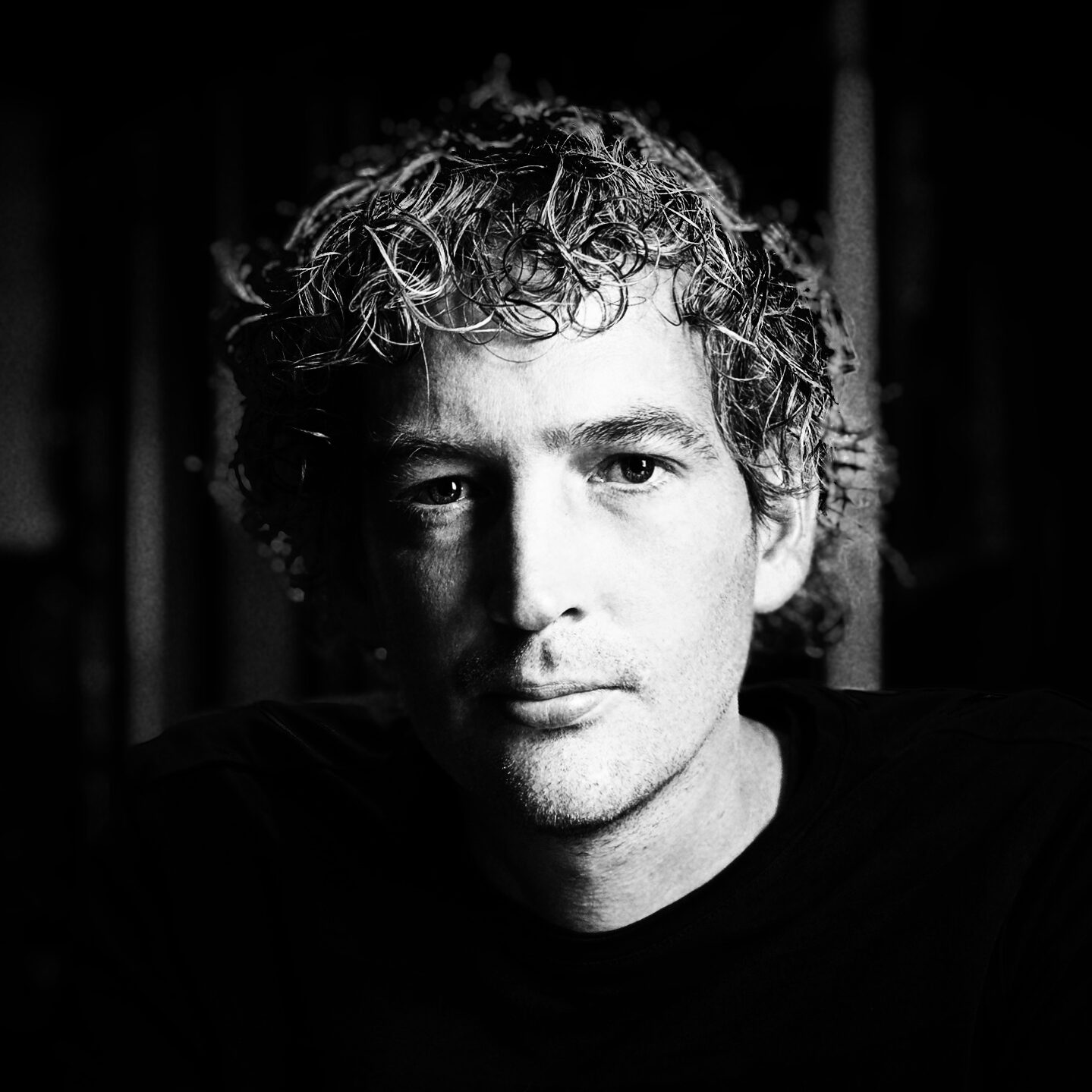After we leave the night shelter at 8:00 in the morning, we stand in front of the DEEN supermarket talking. The coffee maker in the supermarket is working again, after breaking down for days, and the croissants are on sale. It is cold outside and for the next few hours we have nowhere warmer to go. We talk a little, mostly about life.
Meeting up with 'friends'
Wouter just turned 18 and has been living in the night shelter for four months. He has applied for the Casa24 project, a youth project of the General Reception Center Purmerend. However, the waiting time is long; it can take from 6 to 10 months. Until then, he sleeps in the night shelter at night and wanders the streets during the day or meets up with "friends.
Wouter grew up in a foster home, where he was raised for eight years before he left. 'This week I was also standing here in front of the DEEN and all of a sudden my foster mother came by, but I think fortunately she didn't see me, I don't want her to see me like that either.' As Wouter searches his phone for an old photo of himself, he says he used to be "much broader and healthier. The blowing made him lose weight.
He kind of falls between two stools. Because he has turned 18, some agencies can no longer help him, and because he is only 18, other agencies cannot help him.
Walter's hopes are based at Casa24, an assisted living project of the Purmerend shelter, which also runs the night shelter. The project is for young people between the ages of 18 and 25, and has existed since 2012. In a maximum of 18 months, these young people are given the opportunity to find their place in society again. But reading an evaluation from 2012, I do wonder what kind of young people can expect help here. For example, some of Casa24's intake criteria are that you must not have psychiatric problems that cause behavioral problems, no addiction, have a strong motivation and have a normal IQ. This makes it seem a bit like they are overshooting their target market, since young people with that description are usually not homeless either. Moreover, like the AOP's regular shelters, Casa24 has long waiting times. For example, it could easily take 10 months before there is a room for Wouter.

He is not alone.
Wouter is not alone. For example, Gert-Jan Schipper of Clup Welzijn Purmerend states that, according to their counts, in addition to the homeless who use the night shelter and acquaintances from GGD, GGZ and/or police, there are about 30 young people of between 18 and 27. They have no permanent residence in Purmerend.
Currently, Wouter receives assistance from the municipality. In Wouter's case, this is 236 euros per month, but none of this has been paid yet. After paying the night shelter (5 euros per night), Wouter is left with about 90 euros to live on, but then comes the health insurance premium which he cannot pay.
'At the shelter they did help me register with the municipality, the first month or so I wasn't registered anywhere.' Wouter doesn't seem to mind very much that he is not insured. Maybe he just doesn't know any better.
I can also weld
Wouter points to a truck parked next to the supermarket. 'I would think that would be cool, Michel. Working on a truck like that. Nice traveling, going abroad. Wouter never went on to study. He doesn't really like studying either, he says, 'maybe 1 day a week, but preferably not. You know Michel, I can weld too, I just didn't come for the exam'.
I have noticed in recent weeks that Wouter is easily influenced by his environment, and so I regularly wonder if this is the right environment for the somewhat rebellious boy. Don't get me wrong: the night shelter is not a good environment for anyone at all, let alone someone who has just grown up. Whereas on the one hand he looks at elderly people and his foster parents with respect, for example, on the other hand he shits on society.
'I had to be inside with my (foster) parents at 9pm. I mean I get it, when it gets dark it's best to be inside, at night the rats come out, but sometimes I just wanted to smoke a joint and be with my friends, I couldn't do that there, now it's easy.' When I ask Wouter later what he regrets most in his life, it is the choice he made to leave his foster parents. He hasn't visited them since he's been in our night shelter.
No regional affiliation
Being homeless did not start for Wouter in Purmerend. He ended up here through a referral from a drop-in center in Amsterdam. "I couldn't get help in Amsterdam, I had no connection to the region, they said.
Purmerend and Zaandam have a core regional function and together they take care of the municipalities in the region in terms of sheltering the homeless. So if you become homeless in Volendam or Edam, you will also end up in Purmerend. Each municipality has its own approach to the reception of the homeless; Haarlem, for example, opts for a policy with more guidance and longer opening hours, while Purmerend clearly opts for the you-seek-it-yourself-out mentality.
Wouter lives most of his day on the street. He hangs out with friends, smokes a joint and admirably regularly rides a new bicycle, the origin of which is unclear. In my view, the lack of guidance and the level of assistance do not help him either. The assistance of 236 euros is too little to pay all his fixed expenses. Wouter does not yet have a real plan for the future, but wishes do. Would you like to have children? I would, two, preferably boys," he says to me one day.
Then he becomes a criminal
The oldest ex-homeless person in my new circle of acquaintances says that 10 months of waiting for Wouter will mean that he will become a criminal. Our "grandfather" has seen it often enough. Wouter is alone in the world. But there doesn't seem to be anyone else who will really notice if Wouter should decide to choose a different course in his life before he is welcome at Casa24, the only question then is what it would then end up costing society, and what this will mean for the future of - the hitherto fairly innocent - Wouter.
There are an estimated 9,000 vagrant youths in the Netherlands. According to the Wmo agreements, municipalities are responsible for the stable social care of vagrant youth. Personally, I think that placing Wouter in a night shelter only to offer him no guidance in addition does not fall under stable social care. I wonder if they think the same way in politics.





